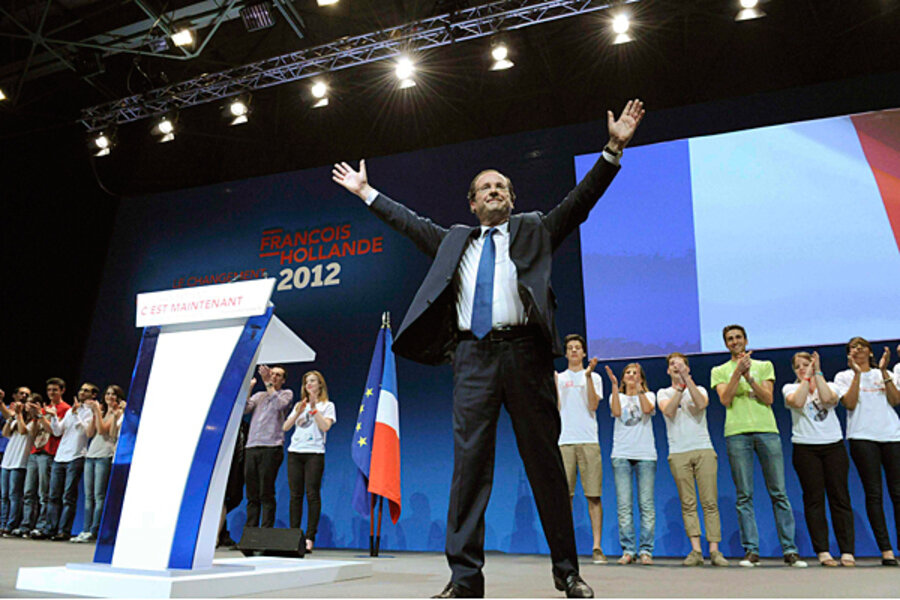In a twist of history, the Socialist candidate François Hollande (polling at 27 percent) will likely face Sarkozy in a run-off – just as Royal, the mother of his four children and former partner, did in 2007.
Hollande is running as “Mr. Normal” – the quiet man, in contrast with Sarkozy’s style more showy or aggressive style that has hurt his popularity among many French. Hollande describes himself as on the center left – “pink,” rather than the “red” radical left. He has strongly criticized “big finance” but has also earned plaudits from small and medium-sized business owners, who see his economic approach as pragmatic.
He was born in the northern France town of Rouen in 1954. His father was a doctor and his mother was a social worker. He attended Paris’s elite Ecole Nationale d’Administration (ENA) that has been the postwar feeder school for most top French leaders and cut his political teeth in the heady leftist 1968 student movement.
He is a top political thinker and policy maker and became the leader of the Socialist party in 1997. He’s been a member of the National Assembly, the lower house of the French parliament, but has not held a top position nor cabinet spot – even as Ms. Royal, who he met at ENA, climbed the ranks as a protégé of former president François Mitterrand.
The Socialists have not held power for 17 years and Hollande did not emerge as their candidate of choice until former IMF director Dominique Strauss-Kahn’s sex scandal took him out of the race. Hollande shed 40 pounds and a pudgy profile in preparation for the bid.
Unlike Strauss-Kahn, Hollande has little foreign experience and his views remain vague (he says he will “work out” withdrawal of troops from Afghanistan by the end of the year). His supporters note that Sarkozy had no foreign policy experience prior to the presidency either.
Hollande’s strength is a grassroots connection to French society. If elected, he was vowed to shift Europe’s current austerity policy toward one of growth. He favors bonds issued by the European Central Bank as a way to finance infrastructure building and says he will renegotiate the EU’s German-led “fiscal compact” if elected.
He wants to impose higher taxes on banks and spend more on education. To cut away at some of Melanchon’s popularity on the left, Hollande announced a 75 percent tax rate on income above $1.3 million, athough the effect is inconsequential. At the end of March, Hollande was 1.5 points behind Sarkozy in first-round elections and nine points ahead in the second and final round.





